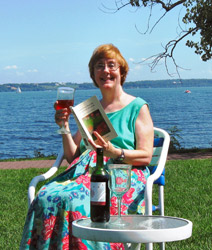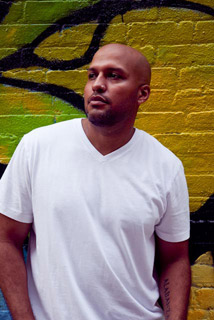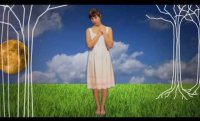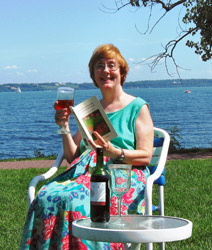Kay Ryan Wins "Genius" Fellowship
This year's MacArthur Foundation Fellows, commonly referred to as recipients of the organization's "Genius" grant, have been announced. Among a class of fellows that includes a virologist, a cellist, an architect, a lawyer for elder rights, an evolutionary geneticist, and a silversmith, poet Kay Ryan is honored for her "deceptively simple verse of wisdom and elegance."
Ryan, who from 2008 to 2009 served as the sixteenth U.S. poet laureate, will receive the five-hundred-thousand-dollar prize, designed to encourage continued work, but with "no strings attached," over the next five years. Author of seven collections, she was honored earlier this year with the Pulitzer Prize for her latest book, The Best of It: New and Selected Poems (Grove Press, 2010).
Translator and poet A. E. Stallings, whose work is influenced by her training in classical Greek and Latin, also received the fellowship. Currently living in Athens, Stallings is recognized for "revealing the timelessness of poetic expression and antiquity's relevance for today." Aside from her translations of Plutarch, Lucretius, and other classical writers, her original works include Hapax (2006) and Archaic Smile (1999). A new poetry collection, Olives, is forthcoming in 2012 from TriQuarterly Books.
For biographies of and interviews with the 2011 fellows, who range in age from twenty-nine to sixty-seven and represent ten states, plus Washington, D.C., Greece, and British Columbia, visit the MacArthur website.
In the video below, Ryan describes the impact of the MacArthur grant, especially for a writer at sixty-five, and where she is in her work, "always just beginning."





 It's a poet’s world. Making connections with other poets and writers, though, isn't easy. Without the kinds of venues more urban areas can sustain, this loose collection of hamlets, villages, townships, and two small cities, Auburn and Geneva, has had no central clearinghouse for writers.
It's a poet’s world. Making connections with other poets and writers, though, isn't easy. Without the kinds of venues more urban areas can sustain, this loose collection of hamlets, villages, townships, and two small cities, Auburn and Geneva, has had no central clearinghouse for writers.
 reading dos?
reading dos?
 I’d written a grant proposal to Poets & Writers for a three-week workshop: Writing Your Way Through History, the first program ever held in the museum. I showed up at the appointed time, fully expecting no one to be there. In semi-rural areas, the hardest aspect of putting on an event is publicizing it, and we hadn’t done much. Even so, right on the dot, several people climbed the stairs to meet me. A short while later a few others arrived. In all, seven people attended at least part of the program, including a fourth-grader, granddaughter of a Terwilliger Museum member. Armed with a sheet of writing prompts I’d given them, participants explored the museum, searching for characters and stories amongst the museum’s holdings. After an hour, we retired to a cozy nook with tables and chairs in the library adjacent to the museum, an ideal writing space.
I’d written a grant proposal to Poets & Writers for a three-week workshop: Writing Your Way Through History, the first program ever held in the museum. I showed up at the appointed time, fully expecting no one to be there. In semi-rural areas, the hardest aspect of putting on an event is publicizing it, and we hadn’t done much. Even so, right on the dot, several people climbed the stairs to meet me. A short while later a few others arrived. In all, seven people attended at least part of the program, including a fourth-grader, granddaughter of a Terwilliger Museum member. Armed with a sheet of writing prompts I’d given them, participants explored the museum, searching for characters and stories amongst the museum’s holdings. After an hour, we retired to a cozy nook with tables and chairs in the library adjacent to the museum, an ideal writing space.